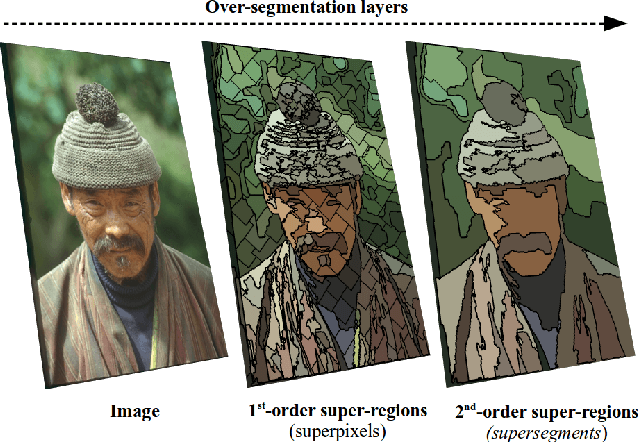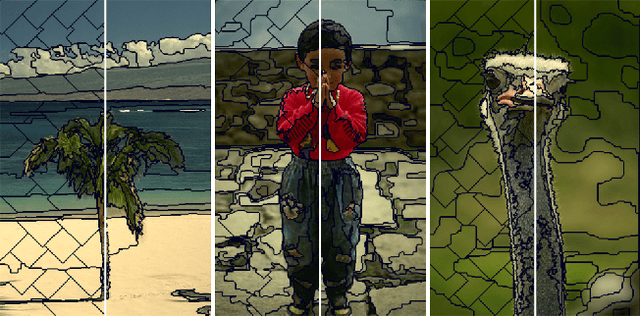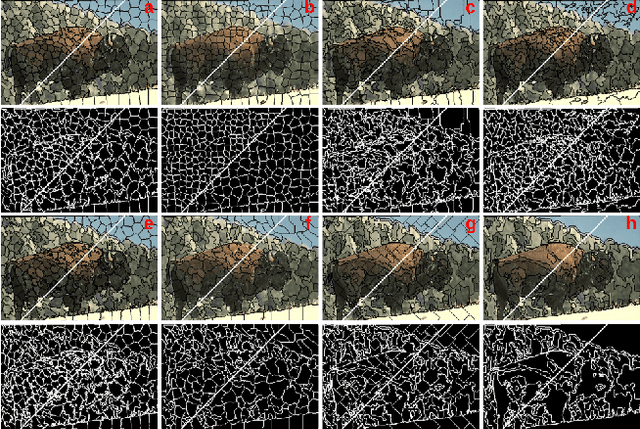Hierarchical Piecewise-Constant Super-regions
Paper and Code
May 19, 2016



Recent applications in computer vision have come to heavily rely on superpixel over-segmentation as a pre-processing step for higher level vision tasks, such as object recognition, image labelling or image segmentation. Here we present a new superpixel algorithm called Hierarchical Piecewise-Constant Super-regions (HPCS), which not only obtains superpixels comparable to the state-of-the-art, but can also be applied hierarchically to form what we call n-th order super-regions. In essence, a Markov Random Field (MRF)-based anisotropic denoising formulation over the quantized feature space is adopted to form piecewise-constant image regions, which are then combined with a graph-based split & merge post-processing step to form superpixels. The graph and quantized feature based formulation of the problem allows us to generalize it hierarchically to preserve boundary adherence with fewer superpixels. Experimental results show that, despite the simplicity of our framework, it is able to provide high quality superpixels, and to hierarchically apply them to form layers of over-segmentation, each with a decreasing number of superpixels, while maintaining the same desired properties (such as adherence to strong image edges). The algorithm is also memory efficient and has a low computational cost.
 Add to Chrome
Add to Chrome Add to Firefox
Add to Firefox Add to Edge
Add to Edge